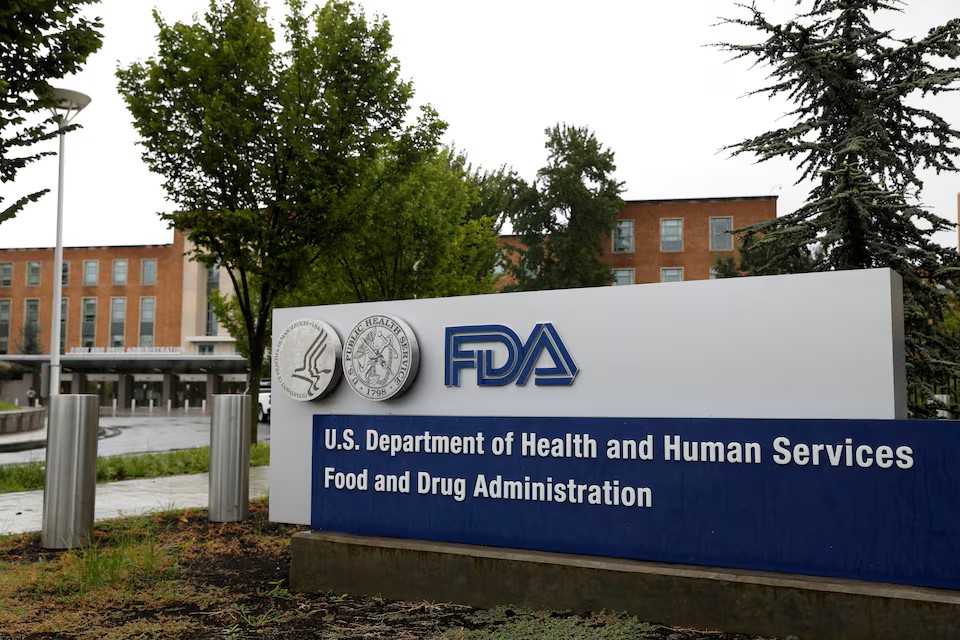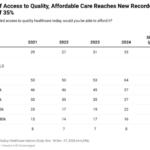The U.S. Department of Health and Human Services (HHS) has begun eliminating some 10,000 jobs as announced by HHS Secretary Robert F. Kennedy Jr.—a staggering shrinkage of the department’s workforce and consolidation of programs that some former officials and others warned would decimate U.S. life sciences activity, from academic research to industry drug development and regulation to public health oversight.
The 10,000 jobs being eliminated include 3,500 positions at the FDA, 2,400 at the U.S. Centers for Disease Control and Prevention (CDC), and 1,200 at the NIH. Another 300 positions will also be eliminated at the U.S. Centers for Medicare and Medicaid Services. HHS has said the job cuts and its restructuring of operations will save $1.8 billion a year, eliminate bureaucracy and waste, and enhance the agencies’ ability to conduct essential functions.
The staffers being dismissed received their notices in their email inboxes, saying they would be placed on administrative leave with no access to their building: “This RIF [reduction in force] action does not reflect directly on your service, performance, or conduct.”
At least four directors of the NIH’s 27 institutes and centers were placed on administrative leave, as were virtually the agency’s entire communications staff, the Associated Press reported based on an “agency senior leader speaking on the condition of anonymity to avoid retribution.” STAT News, however, placed the number at five directors plus at least two senior leaders who “have been placed on administrative leave or offered new assignments.”
On leave, forced out, departed
Other highly placed administrators were also either placed on administrative leave, forced out, exited under pressure to resign or be fired, or departed after being offered lesser positions. News reports identified several such administrators, including:
- Diana Bianchi, MD, director of the NIH’s National Institute of Child Health and Human Development
- Vence L. Bonham Jr., who last month became acting director of the National Human Genome Research Institute after longtime director Eric Green, MD, PhD, abruptly exited the NIH
- Christine Grady, chief of the department of bioethics at the NIH’s Clinical Center and the wife of Anthony S. Fauci, MD, longtime director of the NIH’s National Institute of Allergy and Infectious Diseases (NIAID)
- Brian King, PhD, director of the FDA’s Center for Tobacco Products
- Kayla Laserson, ScD, director of the CDC’s Global Health Center
- Jeanne Marrazzo, MD, director of NIAID and successor to Fauci
- Eliseo J. Pérez-Stable, MD, director of the NIH’s National Institute on Minority Health and Health Disparities
- Peter Stein, MD, director of the FDA’s Office of New Drugs, placed on administrative leave after he was offered reassignment to a patient affairs position, which he declined according to published reports
- Julia C. Tierney, a former FDA chief of staff and more recently deputy director of the Center for Biologics Evaluation and Research (CBER), became acting director after Peter Marks, MD, PhD, abruptly departed his post as CBER’s director on Friday. Scott Steele, PD, an FDA science, technology, and policy professional, on Tuesday was named acting director for CBER.
- Shannon Zenk, director of the NIH’s National Institute of Nursing Research
The 10,000 follow the exit of another approximately 10,000 people who took early retirement, or exited the agencies as a result of the Trump administration’s “Fork in the Road” offer earlier this year. The 20,000 total job cuts will shrink HHS’ workforce from 82,000 to 62,000, the agency stated.
“Competent, conscientious”
“Our department is filled for the most part with competent, conscientious public servants, and yet the agency has been inefficient as a whole,” Kennedy said in a video posted on X announcing the job cuts and overhaul of HHS operations. “We are streamlining HHS to make our agency more efficient and more effective.”
The job cuts began Tuesday, the day Kennedy formally welcomed Martin Makary, MD, as FDA commissioner and Jayanta (Jay) Bhattacharya, MD, PhD, as NIH director. “Their impeccable credentials and dedication to gold-standard science make them uniquely qualified to lead these agencies and ensure its priorities are aligned with this administration’s goal to Make America Healthy Again. We look forward to restoring trust, transparency, and excellence in public health,” HHS stated.
Bhattacharya issued a welcome email to the remaining NIH staffers which, according to Politico, acknowledged that “every inch of the federal government is under scrutiny—and NIH is not exempt.”
“These reductions in the workforce will have a profound impact on key NIH administrative functions, including communications, legislative affairs, procurement, and human resources, and will require an entirely new approach to how we carry them out,” Bhattacharya wrote.
Former FDA commissioner Robert Califf, MD, who held the position in the administrations of Barack Obama (2016–2017) and Joe Biden (2022–2025), said the job cuts will devastate his former agency.
“The FDA as we’ve known it is finished,” declared Califf in a post on LinkedIn. “Most of the leaders with institutional knowledge and a deep understanding of product development and safety [are] no longer employed.”
“I believe that history will see this [as] a huge mistake. I will be glad if I’m proven wrong, but even then there is no good reason to treat people this way,” Califf continued. “It will be interesting to hear from the new leadership how they plan to put ‘Humpty Dumpty’ back together again.”
Added Tom Frieden, MD, who served as CDC director during the Obama administration (2009–2017): “This is a recipe for more illness, higher healthcare costs, and less information for people to make decisions about their own health. It’s a recipe for disaster.”
However, Robert R. Redfield, MD, who served as CDC director in Trump’s first administration from 2018–2021, defended the current Trump administration’s efforts to chop CDC’s operations.
Redfield: “Severe mission creep”
“The CDC has experienced severe mission creep over the past several decades,” Redfield wrote in a commentary published by the Heritage Foundation, a conservative public policy institute where Redfield is a senior visiting fellow at its Asian Studies Center. “Almost contrary to its original objective of controlling and preventing communicable disease outbreaks, the agency now focuses on many areas that are well beyond its historical purview, such as gun violence, climate change, and social determinants of health.”
“When the administrative state expands its scope, not only do taxpayers bear the burden, but agencies become less nimble and able to respond to crises. It’s this lack of efficiency that Trump is working to correct across the whole of the federal government,” Redfield asserted.
Investors, already reeling from Marks’ abrupt departure on Friday, sparked a second straight day of selling off shares at the two largest electronic transfer funds (ETF) focused on biotech.
The largest ETF, the iShares Biotechnology ETF (IBB), fell 2.71% on Tuesday from $127.90 to $124.44, after dropping 1.8% from $130.29 at the close of trading Friday. The second largest ETF, the SPDR S&P Biotech ETF (XBI), finished Tuesday down 3.65%, from $81.10 to $78.14, after finishing Monday down 3.9% from Friday’s closing price of $84.40.
Two analysts with Cantor Fitzgerald’s Healthcare and Biotechnology Research group or “platform,” Josh Schimmer, MD, and Eric Schmidt, PhD, took the unusual step of publicly calling for RFK to exit HHS, in a research note distributed to clients on Monday, Bloomberg News reported.
Analysts: “Not proud” of RFK Jr.
“We are not proud to have RFK Jr. at HHS. He is steering this country into dangerous territory based on his own whims and invalidated beliefs,” Schimmer and Schmidt contended. “While some had hoped he would stay focused on food and fitness, he’s ventured far outside of his swim lane. It’s time to take him out of the pool.”
Brad Loncar, founder of Biotech TV, a video outlet covering the industry, and a longtime observer of biopharma news and trends, said the analysts’ comments were unlikely to have the effect they desired.
“I love Eric and Josh, and I always applaud anyone for speaking their mind/standing up for what they believe in, whatever it might be. Though I’m sorry to say the headline ‘Wall Street Analysts blast RFK’ is more likely to help RFK rather than hurt him,” Loncar stated on X.
“Biopharma has a massive PR problem. Nearly the entire public and every politician of both parties (some more extreme than others) wishes our industry was smaller and made less money,” Loncar added. “Until that image is somehow turned around, wishing to go back to the status quo is a dream.”
Scott Gottlieb, MD, who served as FDA commissioner in Trump’s first administration from 2017–2019, recalled how a quarter century ago, industry leaders lamented how Europeans routinely enjoyed medical advances years before Americans did—a lament that stretched into the 2010s.
“Through a generation of congressional actions, investments in expertise and hiring, and careful policymaking, we built the FDA into the most efficient, forward-leaning drug regulatory agency in the world—and established the U.S. as the global center of biopharmaceutical innovation,” Gottlieb recalled, writing on X. “Today, the cumulative barrage on that drug-discovery enterprise, threatens to swiftly bring back those frustrating delays for American consumers, particularly affecting rare diseases and areas of significant unmet medical need.”



